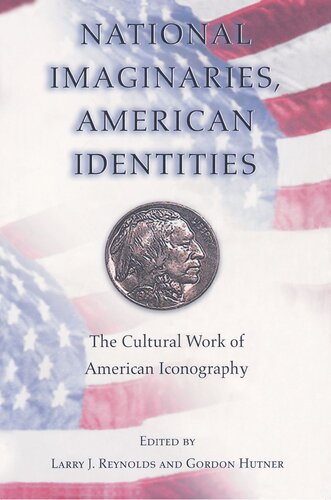

Most ebook files are in PDF format, so you can easily read them using various software such as Foxit Reader or directly on the Google Chrome browser.
Some ebook files are released by publishers in other formats such as .awz, .mobi, .epub, .fb2, etc. You may need to install specific software to read these formats on mobile/PC, such as Calibre.
Please read the tutorial at this link: https://ebookbell.com/faq
We offer FREE conversion to the popular formats you request; however, this may take some time. Therefore, right after payment, please email us, and we will try to provide the service as quickly as possible.
For some exceptional file formats or broken links (if any), please refrain from opening any disputes. Instead, email us first, and we will try to assist within a maximum of 6 hours.
EbookBell Team

5.0
38 reviewsFrom the American Revolution to the present, the United States has enjoyed a rich and persuasive visual culture. These images have constructed, sustained, and disseminated social values and identities, but this unwieldy, sometimes untidy form of cultural expression has received less systematic attention than other modes of depicting American life. Recently, scholars in the humanities have developed a new critical approach to reading images and the cultural work they perform. This practice, American cultural iconography, is generating sophisticated analyses of how images organize our public life. The contributions to this volume exhibit the extraordinary scope and interpretive power of this interdisciplinary study while illuminating the dark corners of the nation's psyche.
Drawing on such varied texts and visual media as daguerreotypes, political cartoons, tourist posters, and religious artifacts, these essays explore how pictures and words combine to teach us who we are and who we are not. They examine mimesis in elegant portraits of black Freemasons, industrial-age representations of national parks, and postwar photographs of atomic destruction. They consider how visual culture has described and disclosed the politics of racialized sexuality, whether subconsciously affirming it in the shadows of film noir or deliberately contesting it through the interethnic incest of John Sayles's Lone Star. Students of literature, film, and history will find that these essays extend the frontier of American studies.
The contributors are Maurice Wallace, Dennis Berthold, Alan Trachtenberg, Shirley Samuels, Jenny Franchot, Cecelia Tichi, Eric Lott, Bryan C. Taylor, and José E. Limón.